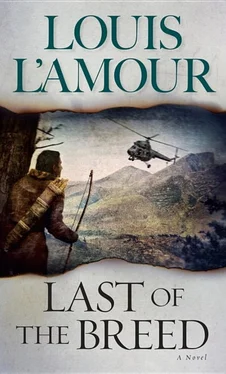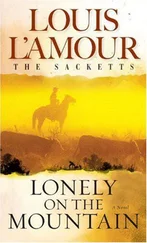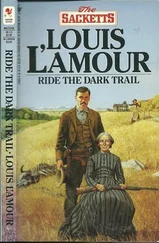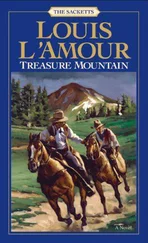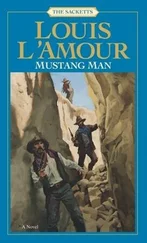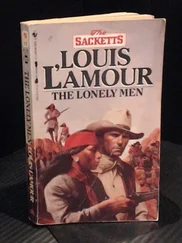Louis L'Amour - Last of the Breed
Здесь есть возможность читать онлайн «Louis L'Amour - Last of the Breed» весь текст электронной книги совершенно бесплатно (целиком полную версию без сокращений). В некоторых случаях можно слушать аудио, скачать через торрент в формате fb2 и присутствует краткое содержание. Город: New York, Год выпуска: 2010, ISBN: 2010, Издательство: Random House Publishing Group, Жанр: Триллер, Историческая проза, Приключения про индейцев, на английском языке. Описание произведения, (предисловие) а так же отзывы посетителей доступны на портале библиотеки ЛибКат.
- Название:Last of the Breed
- Автор:
- Издательство:Random House Publishing Group
- Жанр:
- Год:2010
- Город:New York
- ISBN:978-0-553-89935-1
- Рейтинг книги:3 / 5. Голосов: 1
-
Избранное:Добавить в избранное
- Отзывы:
-
Ваша оценка:
- 60
- 1
- 2
- 3
- 4
- 5
Last of the Breed: краткое содержание, описание и аннотация
Предлагаем к чтению аннотацию, описание, краткое содержание или предисловие (зависит от того, что написал сам автор книги «Last of the Breed»). Если вы не нашли необходимую информацию о книге — напишите в комментариях, мы постараемся отыскать её.
Last of the Breed — читать онлайн бесплатно полную книгу (весь текст) целиком
Ниже представлен текст книги, разбитый по страницам. Система сохранения места последней прочитанной страницы, позволяет с удобством читать онлайн бесплатно книгу «Last of the Breed», без необходимости каждый раз заново искать на чём Вы остановились. Поставьте закладку, и сможете в любой момент перейти на страницу, на которой закончили чтение.
Интервал:
Закладка:
He opened the door. “Emma. Emma Yavorsky. Get a message to Lieutenant Suvarov. I want some planes out flying.” He checked the coordinates and handed them to her. “The planes must fly across that area. A careful search.”
Emma Yavorsky’s lips tightened in disapproval. “It will cost too much,” she said. “They will not allow it.” She stared at him. “You are being foolish about this. The man will die out there. Siberia will kill him. Let him alone, let him die.”
“Your advice is usually good. But not this time. Many men will die out there; many men can die. But not this man.”
Chapter 24
It was time for a change of direction. Joe Mack rubbed his cold hands, watching his back trail. Something moved back there, probably an animal, but instinct as well as common sense told him he was being followed.
By now they had guessed his intent, and they would prepare for his coming. He had set traps, deliberately chosen difficult ways, done what he could to slow pursuit and discourage those who followed him.
Spring was coming, but it was still some weeks away, and a move toward the coast would put him in somewhat warmer weather. It would also lead to greater risk, for villages were more frequent. To strike back into the interior would increase his distance from his final goal, so he would move toward the coastal mountains.
First, to find a suitable place to make the change. Squatting on his heels he studied the terrain. What he hoped for was a rocky shelf relatively free of snow. As his eyes sought a possible avenue of travel he was alert for any movement. In the vastness of the taiga, there were men as well as animals, and in the wilderness all men went armed. Many of them were bandits, working singly or in company, and robbing any unwary travelers.
Joe Mack carried his bearskin in his pack with the carefully folded shirt Natalya had made for him. Now he wore three lightweight garments, the outer one made from the intestines of reindeer, carefully cleaned and then cut in strips and sewn together with sinew. Such a coat would shed rain and snow as easily as a slicker. He wore the stolen sweatshirt next to his skin and then a loose jacket of wolf hide. Necessarily, Joe Mack had used what could be had, not what he preferred.
Joe Mack came down the mountain in the late afternoon and walked eastward over rock polished smooth by ice. He walked steadily through scattered trees and low brush. It was very cold, but the air was clear. Cold as it was, this part of Siberia had more clear days than any other part of the Soviet Empire. Several times he saw deer, and once a moose, a huge old bull who raised his head, staring at him. He had been expecting moose as he had seen their teeth marks on aspen trunks.
Leaving the rock, he climbed up a steep slope, placing his feet with care to disturb none of the smaller rocks, which might mark his passing. He avoided limbs, ducking under them or passing without brushing them where possible. Some had a light coating of snow that could be disturbed, others might be broken or the leaves pushed out of shape, all evidence of his passing if seen by a skilled tracker. When stepping back on a rock surface again, he was careful to knock the earth, sand, and leaves from his moccasins before reaching the rock, so as to leave no traces. These things were done without thinking. They had become habitual.
Crossing the mountain slope, he next went down a gorge filled with a dense growth of spruce, weaving a careful way through them. He did not stop to leave any traps, that would come later, when a follower was apt to be tired and less cautious. He slept that night in a huge hollow tree, the hollow trunk serving as a chimney for his small fire, perfectly shielded by the tree itself. The place was snug, and in a few minutes, with a fire going, it was warm. The opening in the hollow tree had been covered by a crude door made of evergreen boughs woven together.
When morning came he made a stew of some of the dried meat and then made tea, taking his time and resting. It had been weeks since he had slept so well and days since he had enjoyed a warm meal.
The forest was changing. Now there were many cedar trees, some ash, oak, and walnut. There were more birds, too, and the tracks of deer were everywhere about.
As he moved, his thoughts were busy, not only absorbing the country but trying to guess what Zamatev was doing. They knew about where he was now, not within miles, but certainly within the area. His sudden shift toward the east might delay pursuit for a brief time, but no more. Also, it would have the effect of narrowing still more the area in which they must search. He must at all costs avoid contact with or being seen by people, something that could grow increasingly difficult. Twice on this day he had come upon the remains of old campfires, so hunters did range these woods.
His thoughts kept returning to Natalya. How were they? What had happened after he left? Could she get away to the coast? To the Maritimes? Even so, how could he possibly slip in there and get her out? It was ridiculous to even consider it, yet he might get her away from there. The interior? No chance, no chance at all.
He stopped suddenly. He had been following a game trail, and suddenly in the trail before him was the track of a large cat.
A tiger!
As if he had not troubles enough. It was a fresh track, perhaps not an hour old. There were leopards in the area, too, or down in the Sikhote Alins nearer the coast. But this was a bigger track than that made by a leopard, and tigers went further in their hunting than did leopards, and they stood the cold better. This area had long been known for tigers of great size as well as of fierceness, and the Chinese as well as the native Soviet population had suffered from them.
He followed, estimating the size of the beast by its stride and the impression of the tracks, although there was small chance of that because of the frozen earth. But here and there, in a few soft spots, the pugs made a definite impression. The tiger was a large one. Soon the tracks left the dim trail and went off down the mountain to the east.
The months had changed him. He was lean, hard, and even more muscular. More and more he was becoming the Indian, a man of the wilderness. He was no longer a stranger to this country, for he had come to know its ways and had learned to live with it.
As night came on again he moved higher on the slope to find a place where he could catch whatever warm air there was, for it would rise, leaving the slopes often warmer than the valley below.
He found a rockfall where several great slabs had fallen in such a way as to leave a shelter beneath them and a place where he could have a small fire unseen. He was gathering sticks for his fire when he saw the highway.
It was miles away but could be nothing else, for he saw the lights of what appeared to be a convoy moving along toward the east. There were six trucks in the line. Borowsky had told him that trucks often traveled so because of occasional hijackings. The goods they carried were worth so much on the black market that hijackings were not uncommon.
He returned to his well-hidden cave under the slabs and fixed a small meal. He did not make tea. He had enough left for one more brewing, and then he must do without. Coffee was an almost forgotten luxury.
Later, when he emerged to make one last gather of fuel before sleeping, he looked down toward the highway.
There were no lights. He was turning away when he saw one set of lights moving very slowly. He paused, watching.
Something seemed to be wrong. The truck slowed and slid a little to one side, and then the lights were stationary. After a few minutes they started to move once more, barely creeping. Then the truck turned toward him and stopped. The lights went out.
Читать дальшеИнтервал:
Закладка:
Похожие книги на «Last of the Breed»
Представляем Вашему вниманию похожие книги на «Last of the Breed» списком для выбора. Мы отобрали схожую по названию и смыслу литературу в надежде предоставить читателям больше вариантов отыскать новые, интересные, ещё непрочитанные произведения.
Обсуждение, отзывы о книге «Last of the Breed» и просто собственные мнения читателей. Оставьте ваши комментарии, напишите, что Вы думаете о произведении, его смысле или главных героях. Укажите что конкретно понравилось, а что нет, и почему Вы так считаете.
